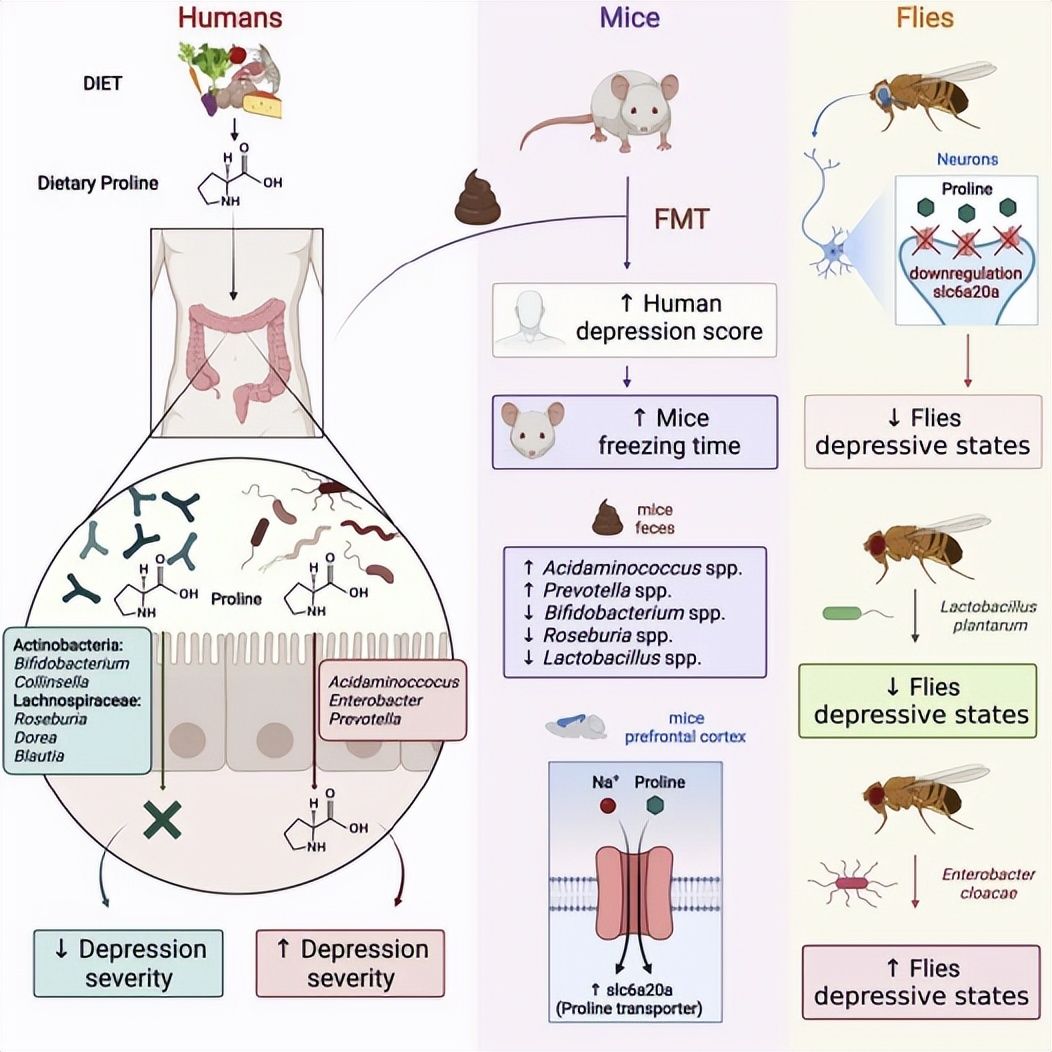According to the statistics of the World Health Organization, the number of depression patients in China has reached as many as 100 million by 2020, which is the country with the largest number of depression patients in the world. The number of people with depression is huge, but the consultation rate is very low, no more than 30%, and the recovery rate only accounts for less than 5% of the total number of patients with depression. The prevention and treatment situation is grim. How to prevent the occurrence of depression has become one of the hot spots of modern young people’s attention.
A few days ago, a research team from the Institute of Biomedical Research in Girona (IDIBGI), Spain, found that the severity of depression is related to the level of a common amino acid in the blood, proline (proline). Elevations were significantly correlated, with higher dietary and human plasma proline concentrations associated with greater depressive symptoms. During the research process, experiments in humans, fruit flies, mice and other species have demonstrated that diet and the composition and metabolic activity of gut microbes affect proline levels.
Researchers found associations between proline and depressive traits from a questionnaire that investigated the frequency of food intake. When designing the questionnaire, they covered the consumption frequency and nutritional ingredient list of more than 90 kinds of foods and beverages, and collected a total of 116 subjects from non-depressed patients (44), mild depression patients (47), and severe depression patients. (25) The daily diet of the participants was analyzed by combining with the Depression Screening Scale (PHQ-9) to analyze the relationship between gut microbiome composition, function and depression.
The researchers found significant differences in microbiome composition between healthy participants and those with depression, with proline associated with microbiome function and metabolites associated with glutamate/GABA metabolism. The associations were most pronounced for depressive traits.
The new study opens new avenues for finding potential diet-based treatments for depression, the researchers say.

Which foods are high in proline in the daily diet?
Proline is a non-essential amino acid, which is distributed in various proteins and is an important component of collagen and cartilage, especially in collagen. The main foods rich in proline are: animal offal, pig trotters, chicken skin, duck skin, fish skin, pig skin, beef tendon, grass-fed beef, chicken, etc.
Does it mean that for every bite of animal offal, pig’s trotters and other foods we eat, people who consume a high proline diet have high depression scores? The researchers found that it was not people who ate a high proline diet who had high depression scores, because the gut microbiota shared every bite of food we ate, which allowed the gut microbiota in some of our populations to absorb pro-proline Metabolism of amino acids, resulting in lower proline levels in his plasma, and lower depression scores.
This study revealed for the first time the relationship between proline, intestinal flora and depression, reminding everyone to reduce the level of proline in the diet and regulate the intestinal flora, thereby reducing the occurrence of depression. Research also offers new directions for depression treatment. In our daily life, we should also eat reasonably and not be too greedy for high-protein foods.
References:
https://doi.org/10.1016/j.cmet.2022.04.001
Mayneris-Perxachs J, Castells -Nobau A, Arnoriaga-Rodríguez M, et al. Microbiota alterations in proline metabolism impact depression. Cell Metab. 2022;34(5):681-701.e10. doi:10.1016/j.cmet.2022.04.001